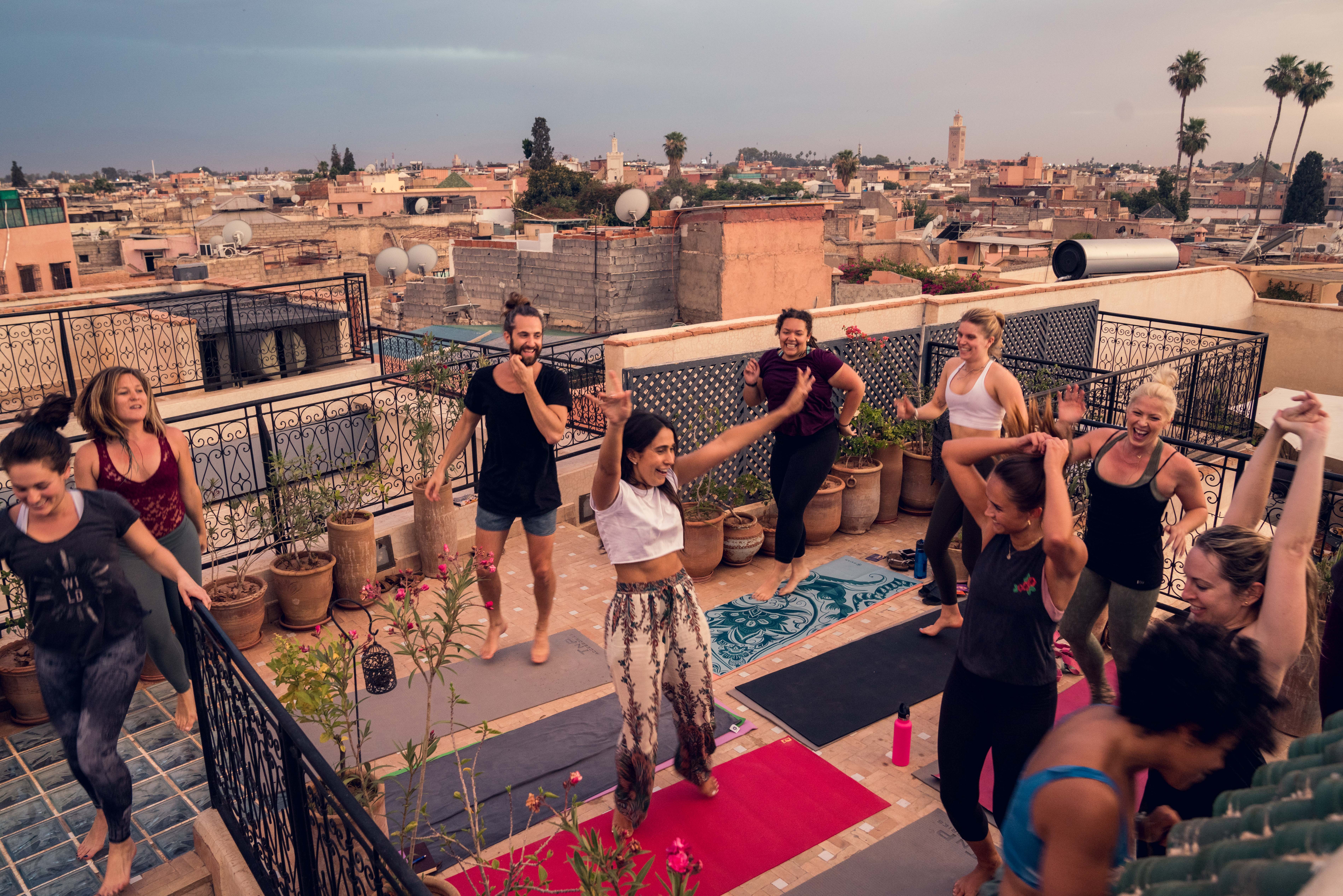There is a Buddhist Proverb that says “Enough is a feast.” I think that we all know the importance of appreciating and being grateful, but why is it so hard for us to have a daily practice and truly enjoy the little things (which we all know are never that little at the end of the day)?
As a team at 109 World we have been thinking a lot about that – especially during these difficult times. Why is it so easy to talk about gratitude but so hard to practice it? Maybe it’s because we need the uncomfortable to keep us on our toes when everything changes? I mean, if there is one truth is that everything in our life keeps changing; our bodies, our moods, the people we love, the world we live in. We probably all learned by now that we can’t hold on to anything. All things come and go. And because of that we are continually driven to become something more, to experience something else. So gratitude doesn’t really fit in this lifestyle of ours. If you have practiced gratitude, even if for a very short period of time, you will agree with me that it turns what we have into enough, and more! It turns denial into acceptance and confusion into clarity – it brings peace and creates space within us to love ourselves into wholeness (I highly recommend it!). The practice of gratitude is our willingness to become still and pay attention to the little things and our experience, whatever it may be, with clarity, appreciation and kindness.
Yes, the effects of gratitude don’t seem to match with how most of us learned to live our “become something more” lives. But our team at 109 decided to change that narrative. We committed ourselves to enjoying the little things, to truly paying attention to our experiences as they actually are, and to asking ourselves daily and at any moment, “What am I grateful for today?”. Below I am sharing the gratitude practice we adopted and its effects on our wellbeing so far.
“The practice of gratitude is our willingness to become still and pay attention to the little things and our experience, whatever it may be, with clarity, appreciation and kindness.“

The Practice
One thing we learned on our journey to finding a gratitude practice that would stick was that once you name it you can communicate with it. That means that when you get in the habit of naming all that you’re grateful for you can truly feel it, you can embody it and communicate with it. It’s almost the same way unprocessed pain keeps our system of self-preservation on permanent alert but without really knowing what to feel and what to do (because the ‘pain’ was not yet named). Unprocessed gratitude (we call it) is very similar. When you don’t name and communicate with what you are grateful for, your heart doesn’t really know how to feel or what to do in relation to it, so it just stays on alert instead of awakening.
“When you don’t name and communicate with what you are grateful for, your heart doesn’t really know how to feel or what to do in relation to it, so it just stays on alert instead of awakening.“
So at 109 World we adopted a gratitude practice of naming and sharing our “Daily Happys” with each other. We have a group message with those participating so we are able to share either in person or at the end of our day in the group. It can be as little as relaxing with your favorite show that night, taking time to exercise or bake an apple pie, to accomplishing something really important at work or being proud of ourselves for something we did that day. But every single day we all share our happys, and we have noticed some really powerful mental shifts since starting this practice:
We share deeper conversations not only as co-workers, but as friends, partners and parents. This practice has given us permission to get outside the “normal” conversations and dive deeper into each other’s lives without fearing being vulnerable or sounding silly. We have depth in our relationship and that has brought us closer to one another. Rather than the basic “How was your day?” and “Oh, it was good how was yours?”, we now get into specifics that we otherwise wouldn’t have, and have a much closer emotional understanding of ourselves and each other. To grow deeper and develop our relationships this way has allowed us to be better supporters of one another – at work and at home.
“This practice has given us permission to get outside the “normal” conversations and dive deeper into each other’s lives.“
It is really easy to live in a negative mindset. When we started this practice, we felt the need to qualify things with statements like “Well my day was pretty average” or “I had a really tough day, so this will be hard”. But after a couple weeks, we all began to look forward to sharing each day and we appreciated our happy moments better as they came, because we knew we would share them later (processing gratitude). Our mindsets slowly but surely began to shift away from ending each day as “Fine” or “Good, but this thing happened so it wasn’t that good” to “Regardless of what else happened today, I did this and I am really grateful and proud” or “Wow today was a great day I have so many happy moments to be grateful for”. The power of our minds is truly out of this world and this practice has been evidence of that. And while we of course still have bad days and moments, we have full control over our perception and can choose where we focus our energy. After all, we are just as happy as we make up our minds to be.
“We are just as happy as we make up our minds to be.“
Our self-esteem and self-care grew. We all noticed that we became much more comfortable acknowledging things we did – rather than external forces of our lives- that contributed to a good or bad day. We noticed that maybe it was a pretty normal day for us, but we did something nice for ourselves, finished a project, or completed an errand, and we would end that day satisfied with an action we took. This was a huge shift from putting happiness on external forces that are out of our control, to leading us to this realization that we can always choose “happy” at some point in each and every day. Even if nothing seems to go our way one day, we have the choice to end it with our favorite book, a cup of tea, or some small act of kindness to create the “happy” for the day. Overall, this practice turned into an acknowledgment of ourselves, the power we have over our mindset, and our ability to find little moments in each day worth celebrating.
“Gratitude can make a day, even change a life. Your willingness to put it into words and into a practice is all that is necessary.“


